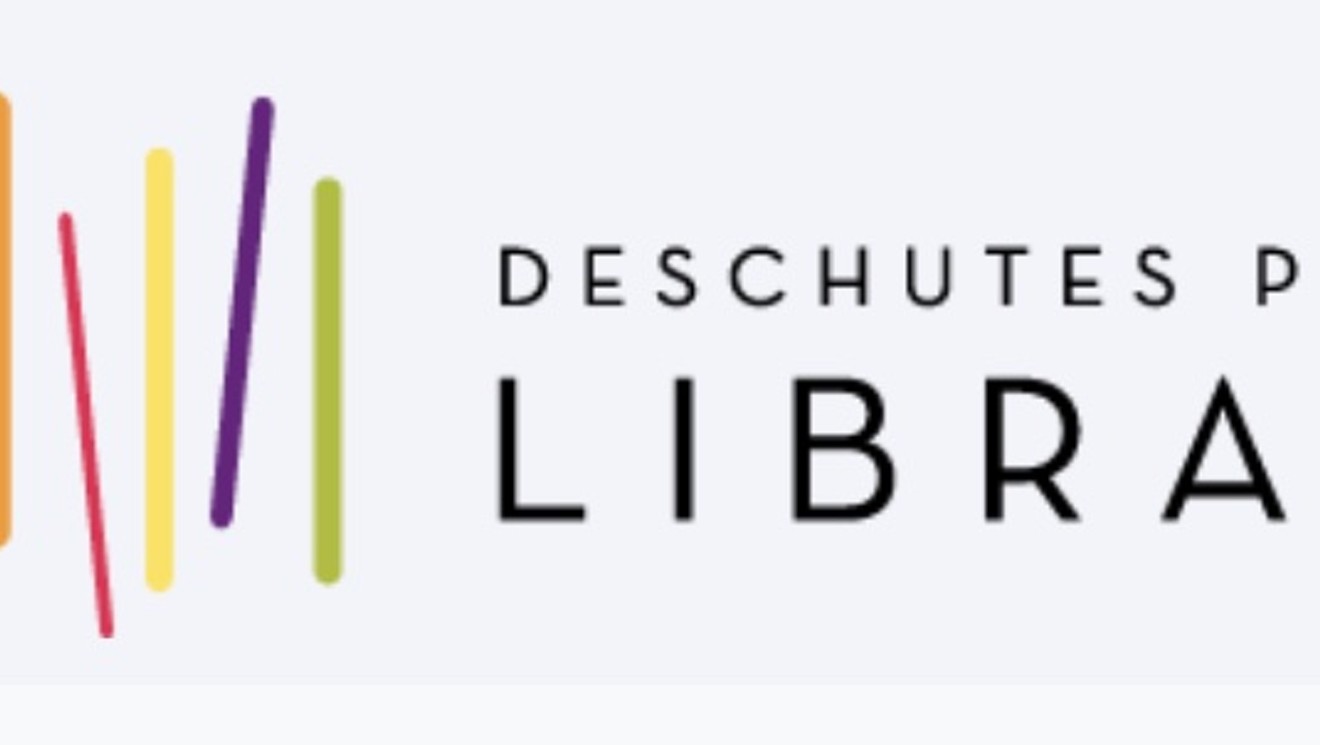Leaning against a table in the corner of a local wine bar, Adam Schell adjusts his square, black glasses as he reads passages aloud from his debut novel, Tomato Rhapsody, occasionally breaking from the page to explain the more idiosyncratic aspects of the 16th century Tuscan setting in which he placed his cast of classically absurd characters. He shifts between accents, at one point employing a rhythmic cockney inflection and when he gets to one of the italicized Italian words that pepper the pages of his novel, he enunciates it not just cleanly but passionately. When he finishes a particular passage about a drunken donkey race, the assembled audience applauds. Schell smiles and they smile back.
Sipping from a stainless steel coffee cup and standing up straight in his plain black t-shirt with a decal on the breast that references another fantastical period piece, reading, "My name is Inigo Montoya. You killed my father, prepare to die," Schell pulls out a small stack of index cards. In his highly articulated, fiercely projected voice, Schell tells an assembled mix of 40 or so silver-haired retirees and toddler-corralling parents that he's prepared five "extraordinary questions" that he can quiz himself with if no one is bold enough to ask a question of the barrel-chested author, who looks like a Big Ten linebacker, because he once was one.
But he drops the cards to the table as a chorus of hands shoots up from the crowd. In the half-hour that follows, Schell will answer questions, which lead him into meandering tangents, telling of his love for authors like Kurt Vonnegut and Gabriel Garcia Marquez, his life as a filmmaker and a screenwriter and a chef and a yoga teacher and a man who rolled into Bend over the summer just in time to answer a cell phone call telling him Tomato Rhapsody had sold. These people, some of whom seem to be friends, but many are clearly strangers, are rapt by this man and the stories - found both in his book and those he relays aloud. Adam Schell isn't exactly a celebrity, even if his last address had a Los Angeles zip code, but he sure as hell seems like one.
Schell says he doesn't drink much at all, but he likes beer. And he says he likes all beers, but especially varieties like the one he pulls out of the cooler at Jackson's Corner near downtown Bend that features 13 varieties of hops, 13 malts and weighs in at 13 percent alcohol. The beer is called HeBrew Jewbelation, and Schell laughs at the title, because, as he'll mention on several occasions on this Friday evening, he is a Jew - a fact that has shaped much of his life's experiences.
Taking a seat, he takes a sip, burying his nose in the dark, foamy head of the brew. He begins talking about how he came to live in Bend, leaving L.A. where he'd built a strong following of yoga students (including the likes of his good friend Orlando Bloom) at the Hollywood YMCA and had also written his book. He and his wife, Tracy, had visited Bend in the past and were passing through town when he got some good news about Tomato Rhapsody - news he'd been waiting to hear for a decade.
"As long as I'm serving a spiritual truth, I will deliberately abuse the facts, but on this one I'm really telling the truth," says Schell. "As soon as we rolled into town and got cell phone reception, I got this call that said the book sold. It was sunset - magic hour - on a Wednesday with the farmer's market and all that great food."
Schell loves Bend. He praises Drake Park as a "magic place" on par with Central Park or Golden Gate park in terms of "significance" to the community and believes that Bend's culinary scene - and this is coming from a traveled chef - is among the best he's seen. And although he's new to town, Schell has found a place for himself. Over the course of an hour and a half sitting at a corner booth at Jackson's Corner, Schell stops in mid thought to greet no less than five different familiar faces.
He apologizes for the interruptions each time, but it's clear he welcomes such interruptions.
"I've been here two and a half months and I love this town. I always wanted this. I wanted to live in a place where I know people. I wanted to be a funky small town guy," he says.
Schell's life has hardly been that of a small town guy, funky or otherwise. Rather, he spent much of his youth and young adulthood as an outsider. He grew up in New Jersey and after his parent's divorce, moved to a town where he became one of two Jewish students at his largely Italian, predominately Catholic high school. Hardly popular, Schell says, he did, however, stand out on the football field, instantly becoming the school's standout player. But even when his skills were rewarded with a scholarship to Northwestern University, his peers still didn't take notice.
"My school paper didn't even do an article after I'd performed well enough both as a football player and an athlete to go to Northwestern," says Schell.
At Northwestern, Schell played middle linebacker for a team that didn't see many victories, in part due to their Big Ten schedule that put them up against powerhouses. His playing time was scattered, but did include a stint as a starter in his junior year and he received an award from his teammates for being the "most respected and most enthusiastic" player. While he was living the dream of so many men his age - playing in the biggest stadiums in college football and against future pro players - Schell still saw himself as an outsider.
"In football, I was an outsider because I was an intellectual," he says.
Schell does this a lot - he refers to college as "football."
"Football obscures my conversation about university because when you play big-time college football in the Big Ten, even though I was at Northwestern, it was a 35-hour-a-week job in the off season. And if you include the time you leave home... it's about a 70-hour week during the season. It's not a normal student experience at all," says Schell.
After football, Schell stopped eating meat and started making films. One documentary he created with his brother made the festival rounds, including Sundance. This led him to a career making short films and commercials, an environment he soon came to despise.
"I was 26 and looking around at all these 40 and 50 year olds and I was like, 'These guys couldn't have been this fucked up when they were 26,'" he recalls.
Schell then spent time traveling, picking olives in Tuscany and heading to Guatemala to do the same with coffee beans. It was shortly after this that he began studying yoga when he returned to the states, and once again he was a stranger, at least at first. He remembers training with 7,000 other students, thinking - quite arrogantly as he admits - that he was "a lion among thousands of sheep." But then came a moment that would transform him.
"I open my eyes and there's this guru walking down the hall and a beam of light comes off her, hits me in the heart and the next thing I know I'm passed out on the ground sobbing the most joyful, incredible, sweetest sobs I've ever had in my life," says Schell.
Almost unbelievably, this is how Schell speaks. There are no "ums" or "uhs" or "likes" and emotion and philosophy punctuate his speech - even after a dose of high-gravity beer.
Most mornings, Adam Schell wakes at five. An hour later he's at the gym where he'll grind through a spin class and then lift weights or practice yoga before returning home to relieve Tracy of parenting duties of their 17-month-old son, Asher. Until a few years ago, Tracy was a Broadway performer, playing the role of Penny in Hairspray. Now she has developed an alcohol-free, harsh-chemical-free hand sanitizer called Clean George that she has recently placed on the market. Schell will make breakfast - he is the household's resident chef - and take care of other things around the house, but by 8:30 a.m., he's at his computer with his mind set on writing for the next five hours.
Schell is facing a deadline for his next book, Food of the Gods, another historically based tale. While Tomato Rhapsody was set in 16th century Tuscany and featured the tomato as a new delicacy, Food of the Gods is set in 1492 Spain and does the same with chocolate. Prior to moving to Bend, Schell and his family traveled to Spain to research for the project.
This particular day, as he sips the last of his Jewbelation, was a good writing day. But on the phone two weeks later, he says he's not having a particularly prosperous session, which he attributes to the over- stimulating experience of seeing Avatar the night before. By August, Schell plans to deliver a draft of Food of the Gods to his publisher.
The pace at which Tomato Rhapsody was written is quite different. In the late '90s, Schell began the story as a screenplay, but then decided - around the time he earned a Masters in creative writing and became immersed in yoga - that he would turn it into a novel. He spent most of the last decade writing the novel. All said, there are about 15 years of Schell's life poured into the book. But it seems the sort of narrative depth, historical references and linguistic playfulness found in Tomato Rhapsody would require this sort of time.
"I wanted to write a personally engaging tale that has a narrative drive and food, sex, religion and is engaging in a very visceral and topical level," says Schell.
The novel tells a story that balances between sadness and humor, with Davido, a tomato farmer, falling in love with Mari, the virgin stepdaughter of the despicable olive-farming kingpin, Giuseppe. Throughout the novel, Schell drops in other characters, many of them named with slang Italian vulgarities that Schell can't describe without succumbing to hysterical laughter, that add to the colorful and quirky village. At times the story is a comedy and sometimes a fantasy and all of this is tied together by Schell's detailed language. And there are the footnotes, which are written in a historically convincing manner, but turn out to be bullshit upon further inspection. For example, one footnote outlines a precursor to the condom called the "Sheath of Moses" and is so realistically written that there's no questioning this historical reality, even given the inordinately complex procedure by which the contraceptive is said to be held in place.
In his mind, Schell was - over all those years - creating a historical farce with a Shakespearean edge. But he realized after the work was completed that he'd fashioned something far more personal.
"I had just received one of the advanced reading copies and I went to bed, then woke up in the morning mortified by the revelation that I'd written a high school coming- of-age story wrapped in a comedic, historical, magic realism cloak," he says. "I would like to believe that the book and myself have some sort of literary chops or something like that and that it came from a deeper wellspring."
He admits that the correlation of the outsider story found in Tomato Rhapsody was accidental, but knows it's the subconscious molding of his own experience as one of two Jews surrounded by Italian Catholics.
"I find having now finished the book all these other questions come up: Did you write a book or are you a writer?" asks Schell, sitting at Jackson's Corner, his wife, son and mother, Susan, having just arrived are waiting for him at a nearby table.
Schell says psychological, deeply introspective things like this with surprisingly frequency. He's constantly analyzing himself and sometimes it's hard not to feel bad for the guy. But on second thought, this guy used to bash his head into opposing linemen and has been brought to tears by a yoga guru and written a hell of a book.
He'll be just fine because he's got another novel on the way to suck up some of that "psychological shit" and spit it back out as excellent literature.
More About Tomatoes
Adam Schell's Tomato Rhapsody is, in essence, a love story - making it a fitting Valentine's Day gift, even if that gift is to yourself so you can escape this ongoing gray spring-ish winter by reading about the 16th century Tuscan countryside.
The core of the story finds Davido, a Jewish tomato peddler from Florence, falling in love with Mari, the virgin stepdaughter of an all-out evil olive farmer. But there's plenty of other stories weaving throughout Schell's deftly crafted debut novel, including a cast of mostly outrageous townspeople who color the novel with their wackiness - and to top it off speak mostly in rhyme.
Tomato Rhapsody is filled with historical goodies, but also ripe with Schell's humorous footnotes, that are hardly based in reality. The combination creates an excellent Shakespearean sense of skewed reality.
Tomato Rhapsody is available locally at Camalli Book Co., Between the Covers Bookstore, Barnes and Noble and also through online outlets.






















